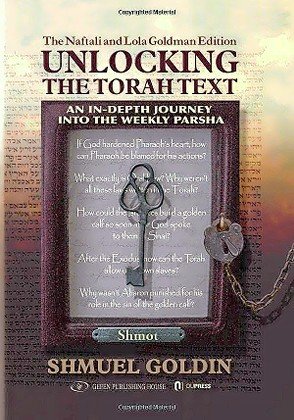Rounding out our Pesach reading suggestions
With Pesach near, this week’s essay lists several additional excellent readings themed to the holiday.
We begin with one of my favorites, Rabbi Shmuel Goldin’s “Unlocking The Torah Text.” If you can obtain the second volume, Shemot, count yourself as very lucky. And, when you get it, please read Rabbi Goldin’s teachings from Parashat Bo, the narrative of the Exodus itself. What I was most taken with was his relating the story of the Jewish optician in Berlin in the 1930s.
Rabbi Efrem Goldberg of Boca Raton, in his recent essay on Dayeinu, referenced a Haggadah commentary by Rabbi Nachman Cohen entitled, “The Historical Haggadah,” in which he teaches us the following: “Understanding what Dayeinu is really all about and why it is the centerpiece of our Seder requires us to zoom out the lens and instead of investigating specific lines, to look at the poem as a whole. What do the 15 stanzas have in common? Why were these events or experiences chosen?”
Citing Rabbi Cohen’s take, Rabbi Goldberg continues: “If you look at the Chumash and in Tehillim, chapter 106 in particular, you will notice that every stanza of Dayeinu corresponds with an incredibly gracious act that G-d did for us and our absolute ungrateful response.”
Both rabbis present the following teaching that Rabbi Goldberg summarizes:
“Explains Rabbi Nachman Cohen, Dayeinu is our reflecting on our history and repairing the lack of gratitude we exhibited in the past. On the Seder night we look back on our national history, we review our story and we identify those moments, those gifts from G-d that we failed to say thank you for. We rectify and repair our ingratitude and thanklessness through the years by saying Dayeinu now.
“In truth, Dayeinu, each of these things was enough to be exceedingly grateful for. Freedom demands gratitude. If you are set free, but fail to acknowledge how you attained that freedom, you in fact remain enslaved to your ego and to your selfishness. … Gratitude is a byproduct of true freedom.”
Another welcome publication is an anthology entitled, “Mo’adim Perspectives: Pesach–Shavu’ot,” featuring essays by Rav Samson Raphael Hirsch, Rav Dr. Salomon Breuer and Rav Dr. Joseph Breuer. It was published by Feldheim and the Joseph Breuer Foundation and edited by Dr. Elliot Bondi, Meta Bechhofer and Dr. David Bechhofer.
An anthology dealing with practical halachah is entitled, “Peninei Halacha: The Laws of Pesach,” by Rabbi Eliezer Melamed and published by Yeshivat Har Bracha. This volume, available in an English translation, is one of the most practical works on this subject.
The Vaad Harabanim of Greater Washington recently issued its highly regarded online bulletin for Pesach. Of particular note are the following articles, “Matzah Baking: A Dying Art” by Rabbi Zvi Holland, director of field operations for Capital-K, and Rabbi Moshe Walter’s learned essay, “Appreciating Pesach In Light of Erev Pesach.”
And then there is “The Pardes Companion to the Haggadah,” a collection of short, easy-to read essays that might be of use to many as a supplement to our Seder repertoire. Among the essays is “Kadesh” by Rabbi Alex Israel, director of the Pardes Summer Program, who hopefully will someday visit our community as a valued scholar in residence; “Yachatz,” an essay by Rabbi Levi Cooper, a distinguished essayist and scholar of chassidism, Rambam and Midrash, as well as a columnist in the Jerusalem Post; and Rabbi Michael Hattin, noted Bible commentator and author of the essay “Tzafun.”
I am honored to include in this year’s Pesach reviews Yeshiva University Press’ “Memory and Meaning,” by my former teacher, Rabbi Dr. Norman Lamm, dealing essays on the Yizkor liturgy that is recited on the last day of Pesach. In his notes to this volume, Rabbi Lamm brings to us the following timely teaching on the value of historic continuity:
“Do not imagine that only the great and dramatic events are significant. In the eyes of G-d and in the eyes of history, we too are important if we but do all we can. For nobody is a nobody, and everybody is a somebody. We influence our children, or others’ children. And they, in turn, will influence others. The fact that we are here today is a tribute to them; had one link in the chain of generations been severed, we would not be here today. We must, then, watch our step.”
I conclude with the following teaching by Rabbi Berel Wein of Jerusalem and Lawrence:
“Thought control has always been the tool of tyrants and despots. It was our father Abraham who first stood up against this type of tyranny in ancient Mesopotamia, risking his life to proclaim the belief in monotheism in an enforced pagan society. That is one of the reasons why our Pesach Haggadah begins with the redemption from Egyptian bondage by recalling the story of Abraham.
“Freedom presupposes the right to be different and if there ever was a one-word description of the Jewish people over the millennia of our existence it certainly is the word, ‘different.’ It is the consistency of the freedom of the Jewish people, with its constant renewal and revitalization, that makes our freedom so special and of such an historical nature. Freedom from Egyptian bondage gave us the opportunity to think differently than the rest of the world and to accept the Torah and all that it entailed at a time when the rest of the world rejected it.”
Please read and learn from all the authors cited and may their writings help to better enhance your holidays.
On behalf of both my dear family and yours truly, may I extend to you, my dear readers, a most meaningful, joyous and safe Pesach holiday.
This column was originally published in 2016.

 45.0°,
Mostly Cloudy
45.0°,
Mostly Cloudy 




